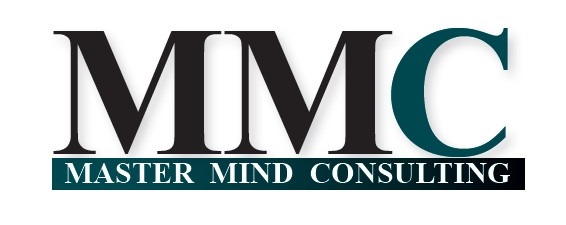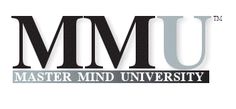From the desk of: Soren Kaplan ?
To: Entrepreneur ?
Re: The Business Consulting Industry Is Booming
Date: Monday, September 24, 2018 at 3:14 p.m. ⏰

Dear Entrepreneur,
Management consulting is a $250 billion industry. It’s big. It’s growing. It’s highly profitable. And it’s about to be disrupted.
Whether the focus is strategy, operations, tax, finance, HR, or IT, business consultants are a staple of corporate life. Today, over 700,000 consulting firms provide services across virtually all aspects of business globally.
From defining strategic direction to simply serving as an additional pair of hands for outsourced work, consultants have become inextricably linked to the success of most large organizations.
Here’s the issue: Festering underneath myriad consulting offerings, methodologies, tools, and firms lie some vulnerabilities that will eventually unravel the consulting business model — the same kind of dramatic disruption that other industries like photography, publishing, health care, and many others have experienced.
An industry becomes susceptible to disruption when it becomes entrenched in its longstanding solutions and financial structure. Disruptive innovations provide simpler or more elegant solutions to existing problems, enabled by new technology and often at a lower cost.
Think portable calculators versus computers, Amazon versus bookstores, Netflix versus Blockbuster, or digital cameras versus film.
Management consulting is not immune to the dynamics of disruption. According to IBISWorld, for example, “the Management Consulting industry is in the mature stage of its life cycle.
The industry is characterized by growth in line with the overall economy, an increasing number of industry players, and technological change based on improving efficiency rather than developing entirely new services.”
In any industry, when the basis of competition becomes efficiency versus innovation and new solutions, disruption lies on the horizon.
Five fatal flaws of the consulting industry
Here are five inherent qualities of the management consulting industry that make it susceptible to technology-driven disruption:
Labor intensive. Most consulting services rely on humans as the fundamental source of research, analysis, recommendations, process definition, process management, and facilitation.
Billable time-based business model. The fee structure underlying most consulting services is tied to billable hours or days, which encourages lengthy, overstaffed engagements to maximize revenue.
High margins. The cost of “goods” in consulting refers not to products but to people. The billable rates of junior consultants in most large firms far exceed what they are paid by the firms in which they work. Value pricing models also dramatically increase the profitability of many projects and firms.
Time-bound value. With the increasing pace of change, the moment a research report, competitive analysis, or strategic plan is delivered to a client, its currency and relevance rapidly diminishes as new trends, issues, and unforeseen disrupters arise.
Knowledge commoditization. The models, templates, and tools of the consulting trade have historically been kept “secret” by consultants and locked away as intellectual capital. The “democratization” of just about everything, including management information and knowledge, will continue so that anyone can access and apply “best practices” on their own.
Paradoxically, even with these fundamental flaws — all of which are contrary to the best interests of clients — the industry continues to grow. Last year, for example, the management consulting industry saw a 4.1 percent growth rate.
So why be concerned? Intersecting trends drive disruption.
Rapidly emerging trends have created a new breed of competitor — even if the industry doesn’t yet view these upstarts as competition. Firms like Domo, Looker, Qlik, Radius, and CBInsights tap into the converging trends shaping the future of business, and the world.
By creating solutions at the intersection of big data, data analytics, the cloud, cognitive computing, visualization, and cross platform anytime access, these firms provide a glimpse into the type of automated, scalable data gathering, insights, and decision-making made possible by next generation technology.
The first to feel the detrimental effects of disruption will likely be the large research and advisory firms such as Gartner, Forrester, and IDC. With models that rely on armies of analysts, PDF reports that become outdated the moment they’re published, and significant annual subscription fees, these firms embody the most significant vulnerabilities of the larger consulting industry.
And this is just the tip of the iceberg. Just about any consultant or firm that conducts primary or secondary research will see the value of these offerings — and clients’ willingness to pay for them — diminish significantly.
While many consultants and consulting firms have established practices advising clients on strategies to leverage disruptive trends and technologies, few apply this to themselves.
Investing in the technological innovations and next generation business models is a fundamentally paradoxical concept in an industry driven by billable hours, billable days, and closely held best practices in the form of “knowledge capital.”
Eat your own dog food.
In 2000, I wrote an article in the first issue of Consulting to Management (C2M) about the importance of creating “knowledge assets” as a strategy to scale professional services offerings. The article described the importance of capturing and codifying intellectual capital in the form of process methodologies, tools, and templates. Many firms do that quite successfully today.
Repeatable processes, models and tools are indeed important for efficiency, scalability, and profitability. Yet the physical delivery of these staples of the trade remain chained to an entrenched business model. A new approach is needed if the management consulting industry — let alone individual firms and consultants — will have the chance to unlock the next phase of its evolution and value, before some dramatic external threat forces the issue.
Many clients hire consultants to tap into strategic thinking — seeing the big picture, identifying scenarios, choosing options, and creating game plans. Yet a conspicuous void exists when it comes to addressing strategic questions by and for the industry itself.
Here is a set of questions that can help jump start new business models for management consulting:
Transformative problems. What emerging client challenges and needs exist that, if addressed, would transform their business by 10x, or even 100x?
Radical intelligence. How do we leverage big data, artificial intelligence, collaboration tools, and other technologies to create a step change in the level of knowledge and insight we deliver?
Scalable relevance. How do we scale our tools and methods while ensuring applicability to the widest possible audience globally?
Knowledge democratization. How do we make our models, tools, and resources ubiquitously available while building a sustainable business model? Collaborative ecosystems. What networks can we build or join that exponentially elevate the value we create and deliver?
In the field of business strategy, the “tyranny of success” is a well-known dynamic: what led to today’s success will ultimately lead to tomorrow’s failure.
Individual consultants and consulting firms that recognize the limitations of their existing business model while exploring opportunities that tap into emerging technologies and new delivery models will have the best chance of thriving in the fast-approaching disruptive future.
To Your Consulting Success,
Soren Kaplan
Author, Writer, and Content Contributor for Inc.com
Author of The Invisible Advantage

![]()
Have a question?
Please send us an email message below and we will answer you promptly.



